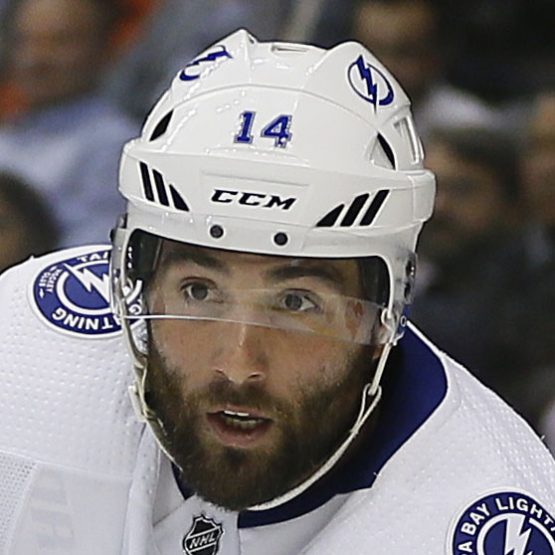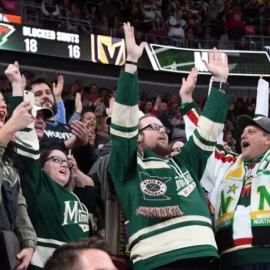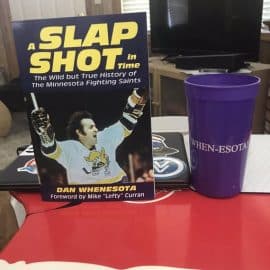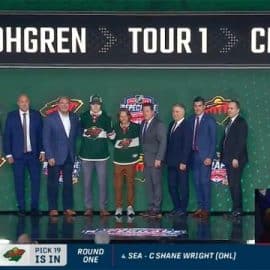Back when I was a senior in High School, I used to referee youth football games. During a 5th grade playoff game I sort of took over about halfway through the game. Some of the officials were 8th graders, including one who was put in charge of the clock (yes, probably not the best choice, but I wasn't there when that decision was made). The game was pretty close, and the one team was holding onto a slim 12-8 lead and time was running out in the 4th quarter. The trailing team was on a desperate drive to win the game so after every play the coaches would frantically want to know how much time is left. I'd ask the 8th grade kid on the clock and then relay whatever he said. With the trailing team about 15 yards from the end zone and a victory the coach asked how much time is left and I told him what my timekeeper told me, "1:32 left to play," I said. The team ran a play and got a few yards and my time keeper ran up to me and blew his whistle and said the game was over. Immediately I had two coaches screaming at me and it was obvious the timekeeper had made a big mistake. The trailing coach was telling me how outrageous it was that the game was declared over while the coach with the lead was equally emphatic saying over and over, "you heard him, the game's over!" Without being able to know how much time had elapsed, I came up with an instant if imperfect solution. I told the coaches there was no way the game was over, so I was going to give the team that was trailing 4 plays starting at the 10 yard line with no clock to worry about. The trailing coach tried to tell me that is not good enough and I told him that he either accepted my compromise or I'll say the game is over right now. Left with no choice they accepted it. Ultimately the trailing team was stopped short and of course that coach was still upset, but not too bad. Life moved on and it didn't turn into any major scandal.
A similar sort of crazy situation happened in Game 7 of the Western Conference semifinals when a strange decision to blow a play dead late in the 3rd period erased what appeared to be a game-winning goal by Niklas Hjalmarsson. The play was blown dead by former NHL Head Supervisor of Officials Stephen Walkom. Walkom did his best to explain his reasons for blowing the play dead to Chicago Blackhawks head coach Joel Quenneville, who seemed about as convinced by his explanation as the trailing coach was back when I was a senior in High School. Ultimately Walkom was left off the hook of officiatig infamy as Brent Seabrook scored shortly into overtime to give Chicago what was rightfully theirs. But who lucked out more, Stephen Walkom or the National Hockey League?
Click on "Continue Reading" for the rest of the article…

Separated at the call? NHL's Stephen Walkom and the NFL's Ed Hochuli
And the experts across North America weighed in on what made a really great Game 7 take that strange step into the bizarre. In fact, Walkom's decision to blow his whistle to call coincidental minors on Detroit's Kyle Quincey and Chicago's Brandon Saad probably elevated what was an entertaining and exciting game to the forefront of the normally hockey ignorant American sports media. It was one of the primary topics on ESPN's Around the Horn and Pardon the Interruption. Was it good exposure? In the hours after the game, the NHL stood by Walkom saying he made the correct call and that it was his job to watch what develops behind the play and that he had no responsibility to let the offensive play develop which was being covered by Dan O'Rourke. The NHL clearly had sent the memo to its collection of broadcasters to stand by Walkom's call, including NHL Home Ice Radio's Scott Laughlin on his Power Play segment where he tried to repeatedly defend the call. Laughlin stated, "what if they (Quincey and Saad) threw punches?!?!" Yet, to any hockey fan with a pulse its obvious this is just pure damage control by the league and that to defend Walkom's decision is rather ridiculous.
Officials have let players slash, facewash, and even punch one another a few times before deciding to blow their whistle, but Walkom sees two players get tangled up near the benches, without any punches being thrown and he decides to blow the play dead right away? If anything, Walkom's reputation as being one of the league's better officials is from his penchant of NOT blowing the whistle. Games are usually a bit more free wheeling when he's on the ice, because he lets a fair amount of things go so as not to ruin the flow of a game. That is part of what makes his actions so bizarre.
In many ways this whole situation is eerily similar to that of longtime NFL official, Ed Hochuli. Hochuli was considered one of the best referees in the NFL for years, his strikingly athletic build and his overall decisiveness meant he often was the man on the field in some of the league's most high profile games. But as Hochuli's career has shown us all, the respectability factor can spiral out of control pretty damn quickly if you're a referee. In 2008, in a game between the Denver Broncos and San Diego Chargers, with Denver trailing by 7 and with just 1:17 left to play the Broncos' Jay Cutler fumbled the football. The ball was picked up by San Diego linebacker Tim Dobbins but Hochuli blew the play dead saying it was an incomplete pass. Unlike Walkom, who insisted he made the right call Hochuli admitted he made a mistake and spotted the ball at the point of the fumble but unfortunately for the Chargers he was not able to award them with the possession of the ball because of league's instant replay rules. Hochuli even took it a step farther and admitted his error publically when he told reporters (and in my opinion these words should haunt Walkom), "Affecting the outcome of a game is a miserable feeling, officials strive for perfection and I failed miserably." But luckily for Walkom, the Blackhawks won and the only effect he had was that the victory came in overtime instead of regulation. Hochuli became more of a punchline for a while but has continued to soldier on after this embarassing officiating moment. Yet who was bailed out more by the fact Chicago scored?
Imagine if Detroit had won this game. Right after it Chicago scored, I even tweeted, "Brent Seabrook may have just saved Stephen Walkom's life." Let's not forget, this is Chicago we're talking about. Can Steve Bartman ever go to a Cubs game again? Or is he still in a witness relocation program after his moment of infamy of being a fan trying to catch a ball. Yet, some fans wanted to kill him for what they felt robbed the Cubs of a chance at ending their streak of futility. Its incredibly stupid for wanting to kill a fan for just doing what probably any of us could've done, Cubs fan or not but sports can bring out both the best and worst in people. For Bartman, he had to be escorted by police and later went into seclusion after his name and address was posted on message boards. I think its a very real possibility that Walkom's life would've been in a similar amount of peril had Detroit won the game. Yet, could it have been even worse for the league?
The league, which has stood firmly behind Walkom since the call would have to do so otherwise it could put the whole integrity of its officials at risk. If Detroit had won, the NHL would've been in a classic Catch-22 where by supporting a ridiculous call that not only cost the Blackhawks their season but also their ownership millions of dollars in playoff game revenues to say nothing of the credibility lost by supporting such a colossal officiating error. The league would've been an instant laughingstock the same way Major League Baseball was when then Commissioner Bud Selig declared the All Star Game a tie. Even then, the league's defense of Walkom is understandable in some ways, but in my opinion it also ignores a general truth that everyone in hockey realizes. Walkom did not have to blow the whistle at that instant he saw Quincey and Saad come together, especially as his angle offered him a fairly clear view of the developing scoring chance. In my opinion, the fact Chicago won the game gave Walkom a chance to admit he had made a bad call. But apparently he felt he was right and therefore there was no apology necessary; at least Hochuli had the integrity and courage to admit what everyone knew.
I understand that officiating is a difficult job, afterall I've been there myself. However, the best officials are often known for their ability to NOT become a major factor in the outcome of the games we (fans) come to watch. Walkom came dangerously close to deciding that outcome in a game with major season ramifications and the league as well as Stephen Walkom dodged what would've been a meteor-like collision to the credibility of the league if the game turned out differently than it did.
Add The Sports Daily to your Google News Feed!










